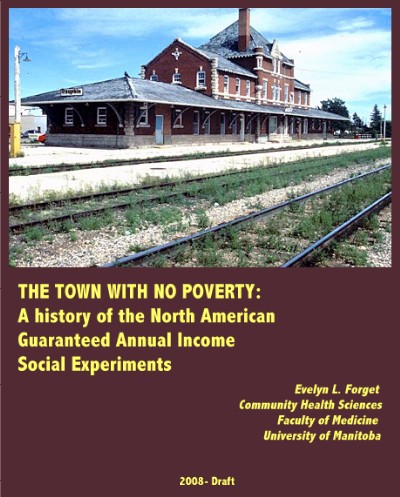Evelyn Forget, a professor of health sciences at the University of Manitoba, fought for five years to get access to those boxes, owned by Archives Canada. She finally succeeded in 2009, but the bulging files — statistics, completed questionnaires, interview transcripts, all on paper — overwhelmed her. “Until it is computerized, analyzing the data in a systematic way would be incredibly expensive,” she says.
Nevertheless, she has been able to piece together part of the story, using the census, public health insurance records and the recollections of researchers and participants.
The experiment began in 1974. It was designed to test the concept of a guaranteed annual income in a small, fairly typical, community. Dauphin, a rural municipality of 13,000 midway between Winnipeg and Regina, was chosen at the behest of former Manitoba premier Ed Schreyer.
The city’s low-income residents were lifted and kept out of poverty, using a negative income tax. (Canada Revenue Agency topped up their income if it fell below the poverty line.) They could use the money as they chose.
The initiative was called “mincome.” It was billed as an “important contribution to the review of Canada’s social security system.” It cost Ottawa $12.8 million and Manitoba $4.2 million.
It ended prematurely. In 1978, Ottawa pulled the plug when the economy slumped, unemployment and inflation climbed and public interest in welfare reform plummeted.
Here is what Forget’s research has already shown:
• During the GAI experiment, Dauphin had a dramatically lower rate of hospital admissions than similar communities in Manitoba.
• Its high-school dropout rate fell and stayed down for a generation.
• It had fewer accidents, serious injuries, arrests and convictions.
• Consultations for mental illness declined.
• And, contrary to policy-makers’ fears, people in Dauphin did not stop working or reduce their hours to get “free” money from the government.
“In all of the indicators I could find for quality of life, people did better,” Forget says.
Continue reading here

No comments:
Post a Comment
Note: Only a member of this blog may post a comment.